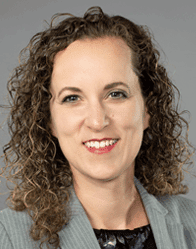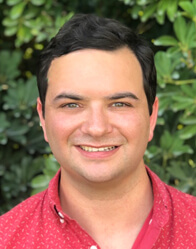Season 1 – Episode 4 – What is an IRB Administrator?
An IRB is typically present at institutions that engage in research. Its main objective is to assess the ethical aspects of research by scrutinizing the research methods that could potentially cause harm to various groups. An IRB Administrator, is responsible for supervising and controlling the policies, procedures, and records associated with the IRB’s functions and activities.
Episode Transcript
Click to expand/collapse
Darren Gaddis:
From CITI Program, I’m Darren Gaddis and this is On Research. Today, what is an institutional review board or IRB Administrator, trending topics both new and ongoing for IRB Administrators and how the landscape of research has changed for IRB administrators in recent years. I spoke with Brooke Cholka, a certified IRB professional with 10 years of experience and research administration. She presents regularly at national conferences and as a contributing author to the third edition of IRB Management and Function. In addition to her work in IRB, she has a PhD in health communication and nearly two decades of research experience. As a reminder, this podcast is for educational purposes only. It is not intended to provide legal advice or guidance. You should consult with your organization’s attorneys if you have questions or concerns about relevant laws and regulations discussed in this podcast. Additionally, the views expressed in this podcast are solely those of the presenter and do not represent the views of their employer. Hi Brooke. Thank you for joining me today.
Brooke Cholka: Thank you for having me.
Darren Gaddis: Brooke, to help us kind of lead the foundation for today’s conversation, what is an IRB Administrator and what is their purpose within the research process?
Brooke Cholka: Sure. So an IRB Administrator is a multifaceted role and they facilitate the relationships between four different stakeholders. So there’s the researcher who’s designing and conducting the research, the reviewers who are reviewing the research for ethical considerations and regulatory requirements. Then there’s the institution, which is of course housing the research, supporting the research, and also the most important group, which I think in many times is the least thought about, but the participants or the people who are in the research. So the IRB Administrator is sort of the focal point that connects all of those stakeholders. They serve as a collaborator with researchers, particularly during the design phase to help facilitate ethical and regulatory appropriate design and conduct of research.
They serve as a resource both for the institution as the IRB Administrator can house sort of specialty knowledge with regs in particular that regular people as they go about their roles in their work lives don’t have to be focused on. So the IRB Administrator serves as a resource to them, both the institution and for researchers. They also have a responsibility when it comes to monitoring active research. So it’s not just that they have a role at the design phase, but really the ongoing active research. They oversee sort of how that happens. And an IRB Administrator can just be one person or they can have a whole team of people who help them achieve their goals.
Darren Gaddis: And Brooke, would you mind sharing your own personal background as an IRB Administrator?
Brooke Cholka: As an undergrad, I was at a small private liberal arts school that didn’t have any grad students. So I actually started doing research when I was 18. So I’ve been doing research for a long time now. And as a researcher, my introduction to IRB spaces was through submitting to the IRB. And while I was doing that, I came across really helpful, supportive, encouraging IRB Administrators who helped me through what is really a stressful, complicated process. And they reduced my anxiety. They made the objectives more clear. They really helped me be confident in submitting to IRBs as a researcher. When I became an IRB Administrator, that was what I really had in mind to bring to the researchers that I work with, is be to them what my IRB Administrators were to me, which is someone who really helps to bring clarity and try to de-stress an otherwise really complicated and stressful interaction.
I’ve been as an IRB Administrator for 10 years. I worked at the University of New Mexico Health Sciences Center, HRPP. I worked at the University of New Mexico Office of the IRB. I worked at the University of Nevada Reno Research Integrity where I worked in the IRB as well as the IACUC. IACUC being the IRB equivalent for animal research. And now I work at Weill Cornell Medicine and I also consult with the peer consulting group. And I confounded and I co-facilitate the SBR network. And I’m a contributing author to the IRB Management and Function third edition. And I’m also a member of the Aerial Consortium, which explores bringing empiricism to the IRB world, particularly looking at quality of IRB review. So Aerial and in particular is that intersection between research and IRB work.
Darren Gaddis: In knowing more about your background, what are some benefits and challenges for an IRB Administrator who might wear a dual hat as both a researcher and an administrator?
Brooke Cholka: I have found my research background and experience to be invaluable when it comes to being an IRB Administrator for a lot of reasons. One thing is designing and conducting research is a really unique experience that there isn’t inherently easy equivalent. While you might theoretically understand what it’s like to be a researcher, unless you’ve really done research, I feel like you don’t have a really good sense of what their experience is. I think back to when I was a master student and we had big old grant and I had to meet my recruitment goals and I spent hours and hours and hours at hospital waiting rooms. If I didn’t reach my goal, not only did I have to go to my PI and explain why I didn’t meet my goal, I had to go to the funders and explain to them why I didn’t meet my goal.
And that’s really a unique experience, and that is the kind of experience that really helps IRB Administrators understand when researchers show up in a panic or stressed out, that they’re not being overly dramatic or something like that. Just really being able to understand where they’re coming from and their reality because you lived it. I really feel like, because like I was saying earlier about IRB Administrators facilitating researchers success in the ethical conduct of their research, that the understanding of working with the realities that researchers have offers opportunities for us to be effective collaborators with them in that process. It also helps because when talking about ethical conduct of research, there’s a lot of different creative approaches to what would work or not work. And so having done research and being a researcher and having those experiences makes for more fulfilling conversations. When a researcher reaches out with questions or conundrums or I really don’t know what to do in this instance, really offering practical solutions rather than arbitrary regulatory solutions is really meaningful.
Darren Gaddis: Could you also describe some ongoing and current trending topics you have seen in social, behavioral and educational research for us?
Brooke Cholka: So some of the trending topics, data sharing, the new NIH data sharing policy is one, particularly when it comes to qualitative data, there’s definitely a lot of questions about does this make sense and how does it make sense? Is there a good way to do this? And just because the quant people are doing it, does it make sense in a qual space? And how should qual data be shared and what instances and with what caveats and for what purposes? So that sort of data sharing, particularly with qualitative data is. Another trending topic is diversity, equity, and inclusion in IRB spaces. So what is the IRB place when it comes to DEI and research? What is overstepping? What is mission creep? When is it solidly grounded in the ethics? What questions should IRBs be asking and what do we do with the information we collect?
In my research, I do DEI staff, and so when I came into the IRB spaces, DEI stuff was something that I was particularly interested in. And when I think back to 10 years ago when I first was going to IRB conferences, they had some DEI sessions and they just were very small audiences. And nowadays, it’s whole arms of the conference are DEI, and really everyone’s grappling with these considerations. And so I really am excited that more attention is being given to these issues. But some other trending topics include AI in IRB spaces. So for example, ChatGPT came out in the fall and IRB Administrators are just really beginning to explore what that means and how we could use it. For example, with consent forms, do we get better written, meaning more plain language consent forms if we used ChatGPT rather than having a physician, for example, writing a consent form, that’s another space.
And then just some oldies, but goodies. There’s always the single IRB and what that means, particularly for minimal risk research and exempt research as many institutions won’t do single IRB for exempt research, but many institutions also are totally fine with that. And there hasn’t really been a great conversation in those spaces about whether we should be doing it or not. And then one of my favorites, which is also an oldie but goodie is flex or equivalent protections. I always encourage people to embrace equivalent protections when they can to really examine what they’re doing when they’re administering the IRB and the requirements and the things they’re asking for and whether those things are actually meeting the goal of participant protections. And if they aren’t, then what things should they be doing and what things should they stop doing.
Darren Gaddis: Brooke, from your own professional experience, how has the landscape changed in the last several years for IRB Administrators and what challenges might be present today that previously did not exist?
Brooke Cholka: One of the biggest changes that I’ve seen recently is really around the single IRB space. It really requires us, us being IRB Administrators, to have to really talk to each other. We have to really understand our place in the world of research and other people’s places in that space. And finding ways to make multiple places all get on the same page. And reliances have been around for a long time, but just really not at the same frequency as current times require. And that I think is one of the biggest changes. We really have to talk to other IRB offices. We really have to look at what they’re doing and why and what we require and why. And are the things we requiring impeding research or the things they requiring impeding research and how to advocate for our researchers and our institution while also playing well in the sandbox with other institutions that have their own thoughts on what’s really important.
So yeah, just other people being in each other’s business and really having a stake in some of these issues, I think is one of the biggest changes. Of course, there’s the changes with the 2018 common rule, which came out just right before the pandemic and then the pandemic changed everything and remote spaces and remote meetings and all of that definitely are still big changes that people are just now really exploring. What did they like about how things were done during the pandemic and what don’t they like and what do they want to get back to?
And then of course, another big change is the NPRM from the FDA. So the notice of proposed rulemaking, which is one of the first steps in regulatory changes. So we all went through this with the Common Rule a few years ago now. And so the FDA is finally getting around to harmonizing with the Common Rule. And so they just put out their NPRM in the fall and they just closed the comment period on that. And in SBER a lot of shops won’t necessarily be seeing a ton of FDA, but definitely devices, for example, has always been something that I dealt with in SBER world and the implications of the FDA changes is another very exciting change that’s coming and hopefully…
Darren Gaddis: What else should we know, or any closing thoughts you would like to leave us with?
Brooke Cholka: Thinking about the intersection of research and being an IRB Administrator as a really powerful place to be, that helps me have the kind of language to speak with researchers and help get them on board with viewing the IRB as a collaborative partner rather than a bureaucratic entity has just been really powerful. And I encourage IRB Administrators if they haven’t been involved in research because their education didn’t take them there or for whatever reason, volunteering with a research group as a professional development opportunity, I think is a really creative way to really understand how research happens and the realities that researchers face. And bringing that back to your IRB work can bring some clarity to questions about why does an IRB do what it does and really can be eye-opening. And so I encourage people if they haven’t had the opportunity to be involved in research to look for opportunities to do that.
Darren Gaddis: Brooke, thank you for joining me today. It’s been a pleasure.
Brooke Cholka: Thank you.
Darren Gaddis: Be sure to follow, like and subscribe to On Research with CITI Program to stay in the know. If you enjoy this podcast, you may also be interested in other podcasts from CITI Program, including On Campus and On Tech Ethics. You can listen to all of our podcasts on Apple Podcast, Spotify, and other streaming services. I also invite you to review our content offerings regularly as we are continually adding new courses, subscriptions, and webinars that may be of interest to you, like CITI Program’s new Environmental Health and Safety subscription. The Environmental Health and Safety subscription provides organizations with key content areas related to health and safety. All of our content is available to you anytime through organizational and individual subscriptions. You may also be interested in CITI Program’s Essentials of Clinical Trial Budgets Course.
How to Listen and Subscribe to the Podcast
You can find On Research with CITI Program available from several of the most popular podcast services. Subscribe on your favorite platform to receive updates when episodes are newly released. You can also subscribe to this podcast, by pasting “https://feeds.buzzsprout.com/2112707.rss” into your your podcast apps.
Recent Episodes
- Season 1 – Episode 1: Women Faculty Members and the Tenure Process
- Season 1 – Episode 2: Graduate Research and Controversial Topics
- Season 1 – Episode 3: Artificial Intelligence in Research
Meet the Guest

Cecilia Brooke Cholka, PhD, CIP – Weill Cornell Medicine
Cecilia Brooke Cholka serves Weill Cornell Medicine as a Human Research & QA Manager and consultant for the PEER Consulting Group. She works to demystify IRB processes and expectations so that researchers and the IRB can work together collaboratively to ensure ethical conduct of research.
Meet the Host
Darren Gaddis, Host, On Campus Podcast – CITI Program
He is the host of the CITI Program’s higher education podcast. Mr. Gaddis received his BA from University of North Florida, MA from The George Washington University, and is currently a doctoral student at Florida State University.








